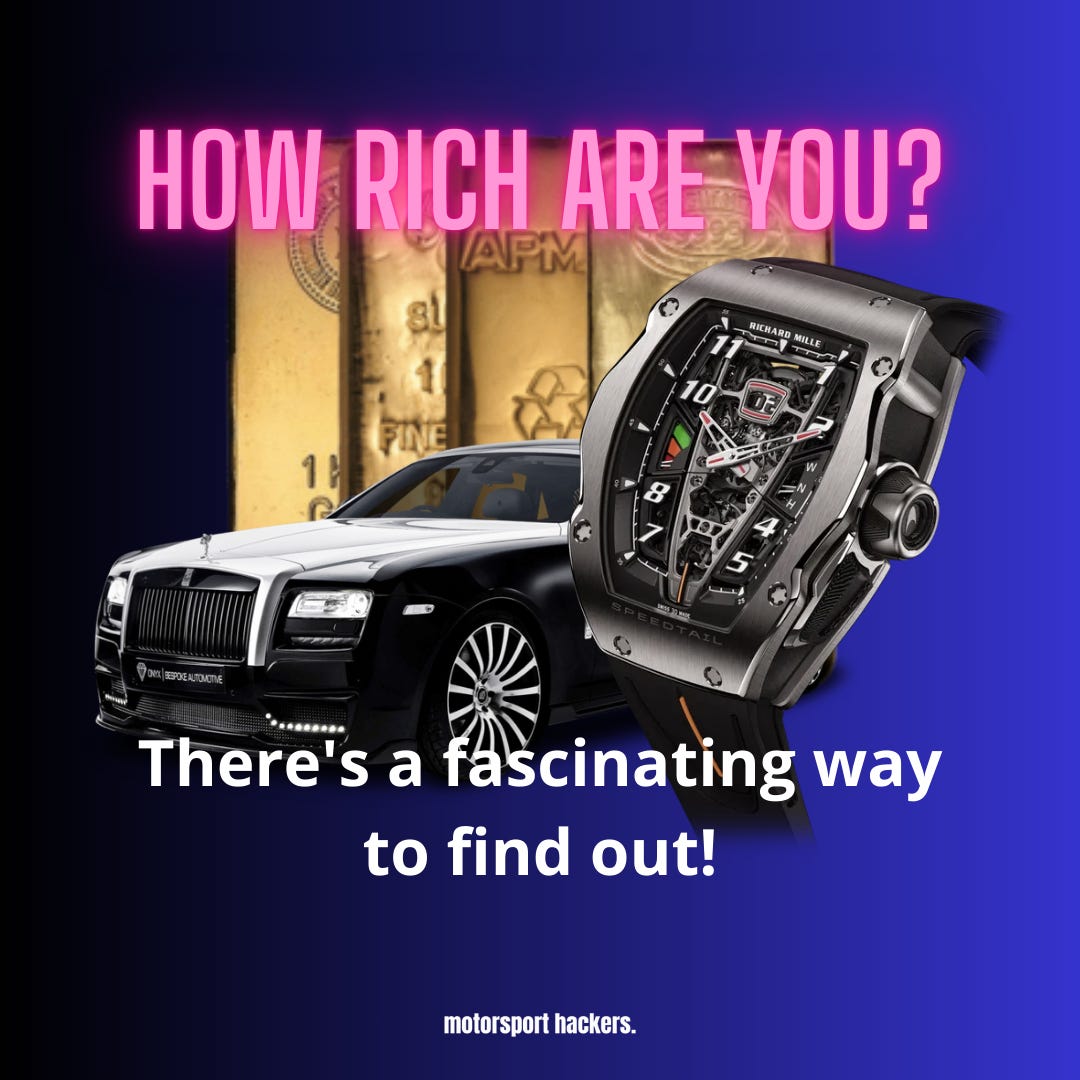Unlocking Your Wealth Potential: How Rich Are You, Really?
Have you ever wondered where you stand on the global scale of wealth? There's a fascinating way to find out! Check out this intriguing guide and discover the surprising insights into your own wealth.
Discover Your Place in the World of Wealth, with this website;
For instance, if you live in Spain and have an annual income of €22,000 after taxes, with no dependents, you would belong to the top 3.5% of the world's wealthiest individuals. Even if you have the same income but mention that you have two adults in your household (with no additional income) and one child, you would still be among the top 13%. Keep in mind that the cost of living in different places may not be perfectly accounted for, but it's still eye-opening.
Despite economic crises and social challenges, Westerners enjoy a level of prosperity and security that many in countries like India and across Africa can only dream of. We are undeniably privileged. This doesn't negate the importance of advocating for better wealth distribution in our societies, as social mobility has become stagnant for many, leading to pockets of poverty and marginalization.
However, in today's interconnected world, we have access to information and awareness about global issues like never before. We can't claim ignorance when we know that thousands of immigrants risk their lives to escape poverty and reach the shores of Europe, often with tragic consequences.
The process of globalization has turned us into global citizens and brings our own well-being into question. Yet, relinquishing our privileges can be challenging. We all believe we have earned our place and the right to a certain standard of living. This is true for the vast majority.
In reality, very few people consider themselves wealthy, especially those with an annual income of €22,000. Not even those who earn double that amount. There always seems to be someone wealthier. The existence of the ultra-rich, who are even advocating for higher taxes (as seen with the 'In Tax We Trust' movement in the UK), further complicates the perception of wealth.
On one hand, wealth can be alluring, but on the other, it's often ideologically and morally frowned upon. We carry within us a mix of Christian values and Marxist ideals, even though we've gradually lost both charity and solidarity from the former and the transformative spirit from the latter. Older readers may recall the daily act of charity that was once expected. Today, we tend to view ourselves as victims of global, technological, and monopolistic capitalism, which has weakened the once-mitigating power of public institutions (Keynesianism and the welfare state). The fall of the USSR, once seen as an ideological counterbalance, led to the rise of neoliberalism, which now extends its influence not only in Russia but even in a China that has transitioned into a state-controlled form of capitalism.
However, none of this changes the fact that, whether we like it or not, we are among the world's wealthy. Does this realization solve anything? In a way, it does. The 'How Rich Am I' website is part of the 'Giving What We Can' campaign, promoting effective altruism. For those who remain skeptical, there are other avenues, such as GiveDirectly, which offers a direct way to provide financial assistance to those in need. There are even street fundraisers equipped with payment platforms like Bizum.
Within our society, the world of solidarity has been well-organized for decades, brimming with initiatives and a resilient third sector consisting of non-profit social entities. Whether we consider ourselves wealthy or not, there is no excuse not to assist those who are far less fortunate.





